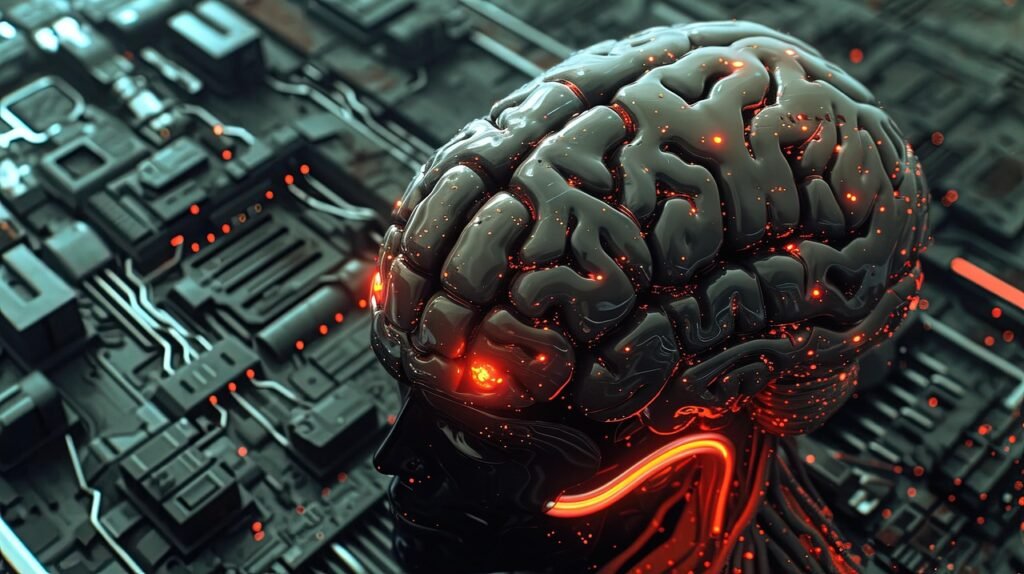How Automation, AI & ML are changing business operations
On a great extent. Yes! AI, machine learning and automation have penetrated people’s lives, causing deep impact. We see technological interventions in almost all our daily conveniences. Intelligent automation and automation in software have impacted the way, personal and business functions are carried out.
Lately, AI, ML and integration automation in IT and other business operations have become and are expected to be increasingly essential. Automation improvements serve you with better chances of scaling and achieving financial targets. Furthermore, your customers get problem-free, quality ensured, timely service.
An era of transformations
There were all speculations around AI when it was first introduced. People thought that computers can do the jobs better and can replace workers at offices, factories, plants and so on. However, this isn’t the case. After all, AI is the product of a human brain.
AI, automation, ML are responsible for doing the tasks they have been programmed for. They are up to bring the efficiency, seamlessness and structure to the work. By employing these advancements, organisations, no matter big or small, are being a part of this transformation. Companies across all industries are considering and implementing AI, automation in business for streamlining processes, ensuring scalability and performance.
It is omnipresent
Automation, AI, machine learning is for all industries. Some startups, for instance, using supreme technology innovations and incorporating them with business models to compete with huge organisations and banks. AI is the reflection of reality. Traditional business processes are widely wearing out. No clients want to prefer them. In today’s information age and millennial century, you can’t hang up on the idea that a modern technologist would want to buy services and products with an outdated business process.
AI is present in digital advertising too. AI is used for market research and branding strategies. Insurance industry is also not an exception. Insurance claims procedures is witnessing AI interventions for quick service.
AI in healthcare is another example of its universal domination. Robots will soon mark their permanent existence in personal care and wellness programs. According to some Neuroscientists and robotics experts, lack of healthcare professionals will soon be ‘a problem of the past’ with a solution like socially-assisted robotics.
Many firms are joining hands with Robotic Process Automation (RPA) service provider to cut down operational overhead and improve service rendering. An RPA not only operates faster but also with high accuracy.
The following section lists upcoming RPA trends about which you should have an idea. Let’s learn what they are.
Upcoming RPA trends:
- Enriching customers’ experience: RPA is enabling organisations to effectively handle customer queries and come up with the solutions immediately. Using different communication channels, inquiries reach to the service provider on the go. With RPA, the resolution comes just as soon.
- AI and IoT contributions: Current RPA trends suggest that more and more industries are driven by innovation of AI and IoT. Business processes that require high efficiency and time, such as manufacturing, packaging, customer service are being handled by these modern technologies. AI, IoT based operations bring facts, figures, data and insights to the fore effortlessly, which decides and forms the course of the future crucial work and business decisions.
- RPA in the public sector: It’s no surprise thatthe private sector has embraced AI and RPA technology. Be it finance, healthcare, insurance RPA is quite there. Seeing the results, it’s time that public sector organisations will soon adopt these advancements fro simplifying business operations and amplifying the quality together with accuracy.
- Job creation: RPA is here to stay, and it’s responsible for creating jobs in a whole new technological innovation which was nonexistent a few years ago. RPA streamlines business processes to free humans for more valuable work. E.g. decision making, planning, and so on.
The future: Intelligent automation
AI and machine learning are yet to be fully optimised. On the other hand, evolving technologies such as RPA is to achieve a grand feat. Businesses all over the world have known the fact that it’s extremely important to have an efficient way of handling business processes to thrive in the ever-competitive digital environment.
Intelligent automation is an association of AI, ML and RPA. AI and machine learning work on gathered data, whereas RPA is a software that repeats human actions. AI and ML are data-driven. RPA is process-driven.
AI and ML are crucial for working on massive data and increase the company’s values. RPA is handling business processes to uplift employee productivity.
Conclusion:
Technology will continue to evolve and disrupt traditional practices. The key is, do you want to adopt these tools and software to be competitive, or keep them at bay in this tech-supported world.
Gartner states RPA market, worldwide grew 63% in 2018. These numbers suggest that digital transformation will have its course set for the upcoming years. Going for RPA and planning for AI, ML infusion will prove to be ultra yielding for your business.
For further information on automation in IT and RPA trends & its scope,

